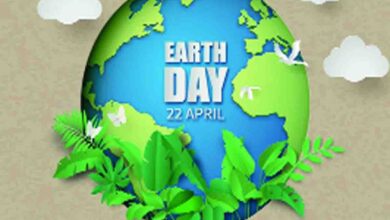How Minimalism Has Become Larger Than Life

 Neeraj Kumar Pande
Neeraj Kumar Pande
When Mahatma Gandhi had opined that “the world has enough for everyone’s need but not enough for everyone’s greed”, no one could have imagined that this belief would become axiomatic in the super evolved 21st century. Nothing testimonies this more than the contemporary paradox that while more than 600 million people globally are battling hunger, close to 13 per cent population is clinically obese. Another instance that can be cited from our own country is that, while luxury brands are competing to target the super rich Indians, more than fifty per cent of our rural populace is struggling to have its nutritional needs met. However are these paradoxes simply due to income inequality, poor literacy level and all such academic patter? Or is there an obsessive consumerism that has blinded the relatively affluent sections of our society? Unfortunately more people in the contemporary world consume goods and services to get themselves psychologically gratified and not out of need. It has been backed by medical research that the spirit of acquisition stimulates pleasure centres in the brain. This reasoning coupled with rising stress levels and individualism, provides a perfect justification for rising consumerism in society. Such comfort purchasing or what has been called the retail therapy is the driving force behind burgeoning modern consumption. However right when the world had begun spinning faster than ever around modish expanding economies, an unanticipated halt came by. Covid 19 pandemic which has taken the world by storm, has completely redefined the way of life for a majority of people. Months of lockdown, curtailment of shopping sprees, homebound work and altered socialisation have all done their bit in redefining contemporary ways of living. The ‘less is more’ cliche has also become more relevant in these newer times as people have begun realising that sometimes the basic necessities of life are in fact the biggest luxury !
This far while human communities around the planet were neck deep in acquisition spree, it has been the ecology which has borne the brunt of this. The developing nations have been tossing up colossal amounts of solid waste in the last decade and as per official estimates, worldwide municipal solid waste generation is expected to increase by roughly 70 per cent by 2050. While plastic waste has garnered huge attention in recent years due to its impact on marine ecosystems, e-waste is now the fastest growing waste stream worldwide. Most distressing trend however is that of huge volumes of food waste as it is an issue of importance to global food security as well as the environment. Each day, food fit for human consumption gets thrown away in massive quantities in medium and high-income countries at both retail and consumer level. On one hand, India has ranked 102 out of 117 countries on the Global Hunger Index 2020, on the other hand in between farmers and consumers, tonnes of pulses, fruits and vegetables rot owing to shoddy storage and inefficient supply chain mechanisms. Besides, at the domestic level also food wastage is alarming in our cities. Other potential food waste generators are supermarkets and restaurants. This causes heightened anxiety when analysed in the backdrop of UN estimates on Food Security and Nutrition 2020, which explains how this pandemic will add 83 – 132 million more people to the total number of undernourished in the world. While this is one critical facet of human suffering, at the other end of the spectrum is unregulated global waste trade that has spelled doom for the ecology of poor countries. Often referred to as toxic colonialism this is widespread as developed countries are exporting plastic waste, electronic waste and incineration residues to the developing economies to lighten their waste burden. Lesser industrialised countries usually do not have safe recycling facilities and toxic waste processing involves manual labour.Hazardous wastes get improperly treated resulting in poisoning of the water bodies, human and animal diseases. Thus for the developing countries it becomes a double whammy- dealing with not only their indigenously generated waste but also coping with imported waste. In fact environmental dumping is akin to offshoring critical epidemics and illnesses, making it an inhuman practice out and out. Sadly the world is getting immersed inch by inch into a marsh of waste.
So how to break this vicious cycle? Before that a more pivotal question- what is fuelling this vicious cycle? The main reason behind this is mindless consumption and consumerism, making minimalism, the only sustainable escape route. Be it the ecological devastation or waste management problem that looms large over us, curtailing over use and wastage are solutions which have many additional benefits as well. This is no rocket science either, the lesser we consume the lesser we waste. This has been proven by Covid 19 crisis pretty well as everyone has been living in survival mode. When life itself has been at stake most people have come to realise that they need little to be genuinely happy and satiated. The things that we believed were important such as luxury goods are no longer valid at this point. Maybe life is not all that bad without fancy shopping arcades endorsing plastic packaged luxury goods. Maybe we can stay happy living on frugal home meals among family and friends without necessarily indulging in elaborate buffets. In a minimalist lifestyle, the idea is about doing away with excess stuff and living life based on experiences rather than material possessions. It not only enables resource preservation but also curtails the waste burden on the economy as well as ecology. Minimalism also ensures financial sustainability, less stress and less distraction. Even as a corporate model it has proven extremely successful during the Covid 19 period, as organisations have been able to save space, electricity and transportation overheads with the majority of their workforce working remotely. At an individual level we can begin by taking baby steps towards achieving a minimalist lifestyle such as buying new stuff strictly when needed, decluttering our homes, reusing things and recycling all that we can. The popular three R’s towards a sustainable future namey reducing, reusing and recycling have tremendous potential for ensuring a cleaner and greener world. Across the globe these principles need to become a universal mantra. We must ensure that all the predicaments faced by us this year translate into a better learning for ourselves in the coming years as there is no denying that this pandemic has taught us to value even the tiniest of things around us.
(The writer is a retired civil servant)
Monday, 21 December 2020 | Neeraj Kumar Pande | Dehradun






